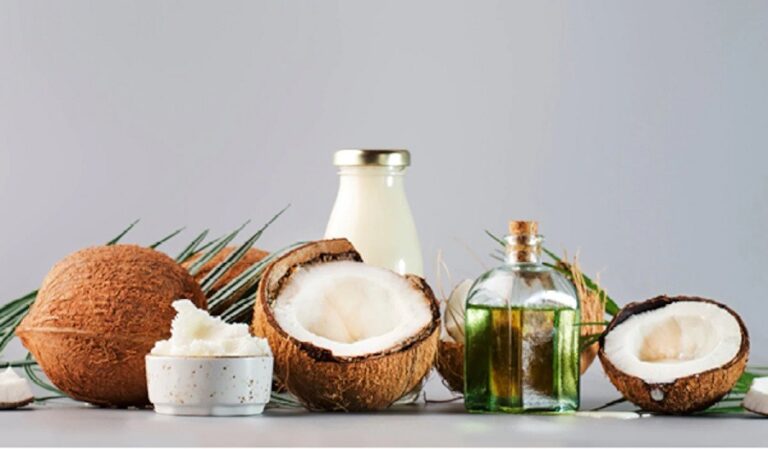The avocado or avocado is one of the foods that has become the most fashionable. You can even see clothes and other products with an avocado stamped on them.
The nutrients in avocado have properties that can have health benefits. Some even consider it a source of Omega-3 for vegans and vegetarians.
This article describes the properties and benefits of avocado with evidence proven by science.
Avocado: What is it?
The avocado, or avocado in English, is the fruit of a tree of Mexican origin ( Persea Americana ) belonging to the Lauraceae family. Its heritage is Mexican.
The flavor of the avocado fruit is neutral; it resembles butter which makes it a versatile food in many dishes.
Avocado is traditionally used as the main ingredient for the preparation of guacamole.
According to several studies, avocado is an excellent food to incorporate into a healthy diet.
One of the most exciting benefits of avocado is that this fruit increases the level of assimilation of nutrients and antioxidants contained in other foods.
In 2005, an Oxford research found that regular consumption of avocados increases the absorption of carotenoids by 3 to 5 times. (3)
Avocado – Nutritional properties
Among the nutritional properties of avocado, its high content of healthy vegetable fats and the unique combination of vitamins and minerals stand out.
In addition, another of the nutritional properties of avocado is that it contains antioxidants such as lutein and zeaxanthin. These compounds successfully fight free radical oxidation processes and inflammation.
The nutritional properties of 100 g of avocado are described below:
- Calories: 160 kcal
- Carbohydrates: 8.5 g
- Azúcares: 0.7 g
- Fibra vegetal: 7 h
- Proteins: 2 g
- Fat: 14.7 g
Avocado is high in vitamins and minerals.
No other fruit can compare to avocado in nutritional properties. Avocado is high in the group of vitamins B, C, and K. These properties are beneficial for those who follow a vegan diet.
| Vitamin | Content in 100 g | % of daily intake |
| Vitamin B 2 | 0.13 mg | 11% |
| Vitamin B 3 | 1.7 mg | 12% |
| Vitamin B 5 | 1.4 mg | 28% |
| Vitamin B 6 | 0.25 mg | 20% |
| Vitamin B 9 | 81 μg | 20% |
| Vitamina C | 10 mg | 12% |
| Vitamin E | 2 mg | 14% |
| Vitamina K | 21 μg | 20% |
Table of vitamin content in 100 g of avocado. Source
As for minerals, avocados are one of the foods rich in potassium par excellence. This mineral is essential for the health of the heart and the cardiovascular system.
Another nutritional property of avocado is its high content of zinc and magnesium. Two elements are challenging to find in the plant world. Its lack causes a drop in testosterone levels. In addition, avocado is high in iron content, a mineral essential for respiratory processes.
| Minerals | Соntenido in 100 g | % of daily intake |
| Iron | 0.55 mg | 4% |
| Magnesio | 29 mg | 8% |
| The Church | 0.14 mg | 7% |
| Match | 52 mg | 7% |
| Potassium | 485 mg | 10% |
| Zinc | 0.64 mg | 7% |
Table of mineral content in 100 g of avocado . Source
Omega-3 in avocado
One of the nutritional properties of avocado is its content of Omega-3 fatty acids. Eating one unit of avocado is enough to cover ALA’s daily needs.
However, its EPA or DHA content is relatively low compared to other foods. Don’t expect to get the benefits of EPA and DHA by adding avocado to your diet.
It is necessary to include foods of marine animal origin, such as tuna or salmon.
Read more: Fish oil – Benefits and contraindications.
7 Benefits of avocado
The benefits of avocado are real; in fact, they are considered one of the superfoods. Research associates the nutrients in avocado with the prevention of several chronic diseases. (3,4,5). Here are seven health benefits of avocado:
- Reduce bad LDL cholesterol
Research confirms that regular avocado consumption reduces blood triglyceride levels by 20%.
As well as being able to lower bad LDL cholesterol. Ultimately, one of the benefits of avocado is improving the health of the heart and cardiovascular system. (4)
- Improve nutrient absorption
Eating avocado can improve nutrient absorption. One of the benefits of avocado’s healthy fats is enhancing the absorption of nutrients from other foods. (3)
- More energy
The avocado provides high-quality energy gradually. The high content of vitamins and minerals in this food can give a greater sense of power, particularly for those used to eating ultra-processed foods.
- Less hunger
One of the benefits of avocado is that it provides a lower feeling of hunger in the long term. The combination of vegetable fiber and vegetable fats can generate a prolonged feeling of satiety.
In one study, people who ate avocado with a meal felt 23% more satisfied and had 28% less desire to eat for the next 5 hours than people who did not consume this fruit. (5)
- Less chance of prostate cancer
Studies state that avocado consumption is related to reducing the risk of certain types of cancer. In particular, they are associated with a lower risk of prostate cancer in men (3).
- Regulate blood sugar levels
Avocados fall into the category of low-carb fruits. Consuming this type of fruit is ideal for regulating blood sugar levels. In an investigation in humans, the daily consumption of avocado yielded results of up to 30% less. (5)
Disadvantages of avocado
The main against or disadvantage of avocado is its relatively high-calorie content; this is due to its high-fat content. The key when eating this fruit is not to abuse the quantity.
Another of the cons of avocado is its high price. Avocados are harvested in countries with tropical and Mediterranean climates. The strong dependence on the environment makes it a relatively expensive food.
Can a person with diabetes eat avocados?
Avocado is one of the foods with a low glycemic load. This is because most of your carbohydrates are indigestible fibers (up to 80% of total carbohydrates)
The nutritional properties of avocado make it a food allowed for people with diabetes. On a type 2 diabetic diet, avocado can be included in salads and in preparing sweet desserts with stevia.
How to eat avocado?
Traditionally, the fruit’s pulp is used as the base for Mexican guacamole. To maintain its nutritional properties, it is best to eat raw avocado. It can also be paired with buckwheat or quinoa as a side for the main dish.
Avocados can be included in the kitchen in endless recipes. The diced pulp can be added to salads. Spread as a substitute for butter on sandwiches. Not to mention avocado pulp as a base for protein shakes with fruits.
Another way to eat avocado is in combination with bananas, cocoa, and coconut oil in the form of ice cream. If the taste of raw avocado is not to your liking, you can add it as a base for baked desserts.
ABSTRACT
Avocado is considered a superfood. This is due to its outstanding nutritional properties: various vitamins and minerals and healthy fats.
The health benefits of avocado are the improvement in the cardiovascular system, more excellent absorption of nutrients, and reduction in cholesterol levels.
To maintain its nutritional properties, it is best to eat it raw.
The avocado has Omega-3. However, its fatty acids are low in DHA and EPA. Getting the benefits of these molecules by eating this fruit is not a good idea.
The most significant disadvantage of avocados is their price; this is usually high in most parts of the world.
Avocado is high in calories but of good quality, so it is food allowed even in diets to lose weight.







